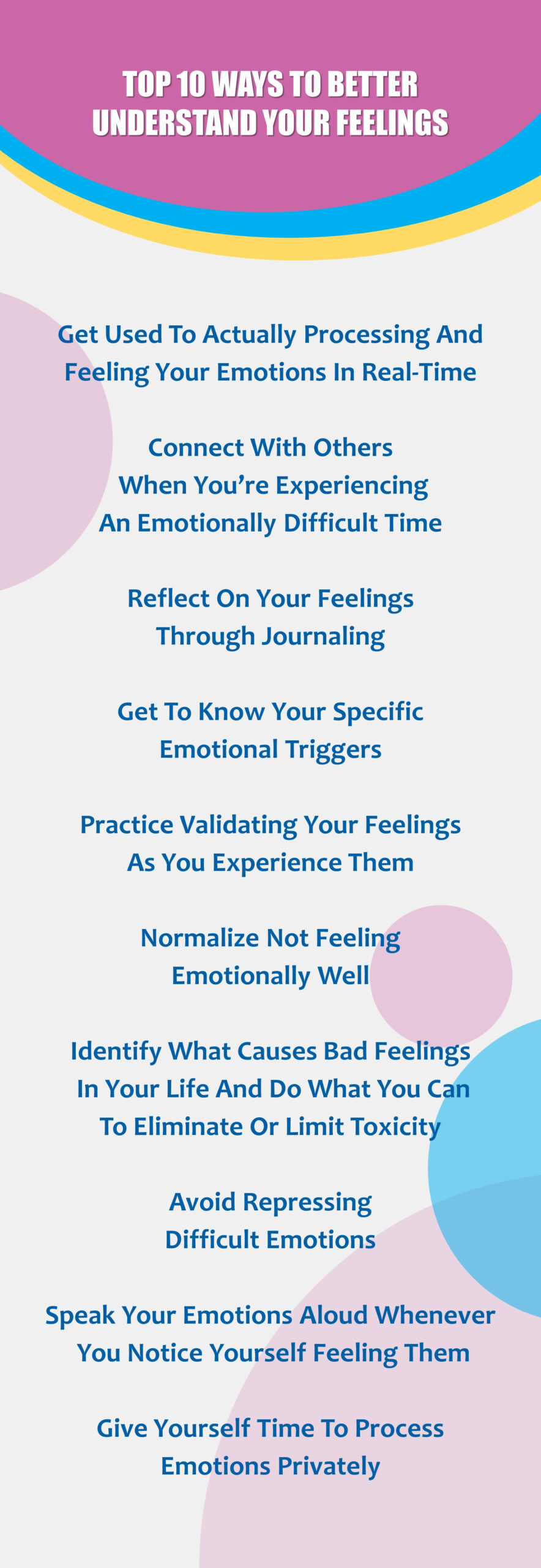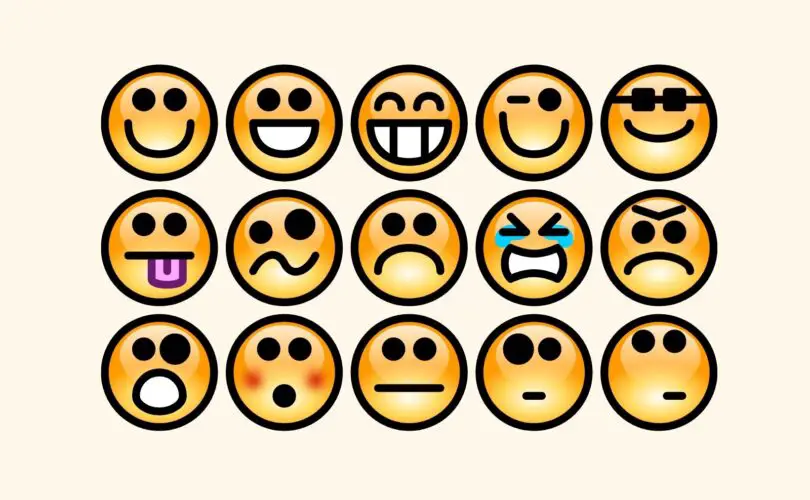Get Used To Actually Processing And Feeling Your Emotions In Real-Time
When you notice yourself experiencing emotions, take some time to actually process and feel them in real-time. Many people do not like doing this because it causes them to explore potentially difficult, uncomfortable emotions as they’re happening. While it may be uncomfortable, it is the best method for actually working through them and gaining a better understanding of your feelings.
Connect With Others When You’re Experiencing An Emotionally Difficult Time
You can gain a better understanding of your own feelings by talking about them with others. The next time you experience challenging emotions, reach out to someone you love and trust for support. Talking about your experiences and emotions with another person is an excellent way to gain more clarity on your feelings and why you are experiencing them.
Reflect On Your Feelings Through Journaling
Reflection is a fantastic tool for better understanding your feelings. Consider journaling at the end of each day as a way to reflect on your feelings and emotions. Journaling helps you get the thoughts and feelings “out of your mind” and onto the page, helping them feel more concrete and easier to explore. As a bonus, writing about your emotions and experiences from the day is a great way to process them so you can allow them to rest.
Get To Know Your Specific Emotional Triggers
Many people experience triggers, or certain stimuli that cause a specific emotional reaction within them. Get familiar with your own set of emotional triggers – doing so can help you better understand your feelings and what causes them to arise.
For example, if you had a bad breakup with a romantic partner at a beach, visiting beaches may be an emotional trigger for you. Even if the breakup happened long ago, you may still feel a similar sense of sadness, emptiness, and desperation whenever you visit the beach afterward.
In this scenario, the beach is the trigger that causes the old emotions to flood forward. Understanding these sorts of specific emotional triggers can help you explore ways to heal those old, negative feelings.
Practice Validating Your Feelings As You Experience Them
Validation is an important way to care for your mental wellbeing whenever you find yourself experiencing big, difficult emotions.
For example, you may catch yourself feeling jealousy over a coworker’s recent success at work. Your jealousy may feel embarrassing to you – the idea of being that jealous over another adult’s success makes you feel shameful and childish, while still grappling with the jealousy itself.
In moments like these, validate that feeling jealous is OK and normal. Tell yourself something such as, “feeling jealous over their success is understandable.” Normalize your feelings with yourself by validating them. Even if your emotions feel disproportionate or weird, it’s important to remember that all emotions are natural reactions. Validating your emotions and thoughts helps you process and understand those feelings better.
Normalize Not Feeling Emotionally Well
Many people preach the importance of positivity. Being positive is important – doing so can help you power through some emotionally-dark times. However, it is also important to recognize that it is okay to not feel emotionally well all the time.
Human emotions exist on a vast spectrum; not all parts of that spectrum are happy (or even neutral!). You are going to experience difficult emotional times. Sometimes you’ll be able to identify why you’re feeling emotionally unwell easily; other times won’t be so clear.
Allow yourself to recognize when you are not feeling emotionally well and remind yourself that it is normal to have those “blah” days where you can’t seem to lift your spirits. Allowing yourself to actually feel and experience your emotionally unwell times can help you better understand those specific types of feelings more easily.
Identify What Causes Bad Feelings In Your Life And Do What You Can To Eliminate Or Limit Toxicity
As you notice yourself experiencing bad feelings, you can understand them further by figuring out exactly what causes them. Often, bad feelings can be traced back to different forms of toxicity. For example, you can experience toxicity in your life through…
- Toxic relationships
- Toxic workplaces
- Toxic familial situations
…and more!
See if your bad feelings can be traced back to any potentially toxic people, places, or things. If so, you can gain a lot of insight and understanding into these feelings (and hopefully devise a good plan for eliminating or limiting their effects on your life).
Avoid Repressing Difficult Emotions
Repression – or attempting to hide or ignore – your emotions is a tempting way to handle them. While repression might work in the short term to deal with difficult feelings, they almost always return with a vengeance, demanding to be handled again later. To better understand your feelings, avoid falling into the “repression trap.” Allowing yourself to feel your emotions rather than repressing them is key to understanding them.
Speak Your Emotions Aloud Whenever You Notice Yourself Feeling Them
Talking out loud carries a special sort of power. Rather than keeping your thoughts and feelings internalized, speaking them aloud makes them feel more real and concrete.
The next time you notice yourself feeling specific emotions, speak them out loud. You don’t need to say anything profound – it can be as simple as “I am feeling really overwhelmed right now” or “I am feeling so saddened by this.” Talking about emotions out loud not only identifies them but opens the doorway to exploring and understanding them further.
Give Yourself Time To Process Emotions Privately
Trying to process your emotions can be messy and challenging. Whenever possible, excuse yourself from the company of others. It is much easier to explore and really feel your emotions when you can step away to privately experience and feel them. Rather than hiding them temporarily and “waiting for a better time,” go ahead and step away to a private place so you can feel them then, in real time.








